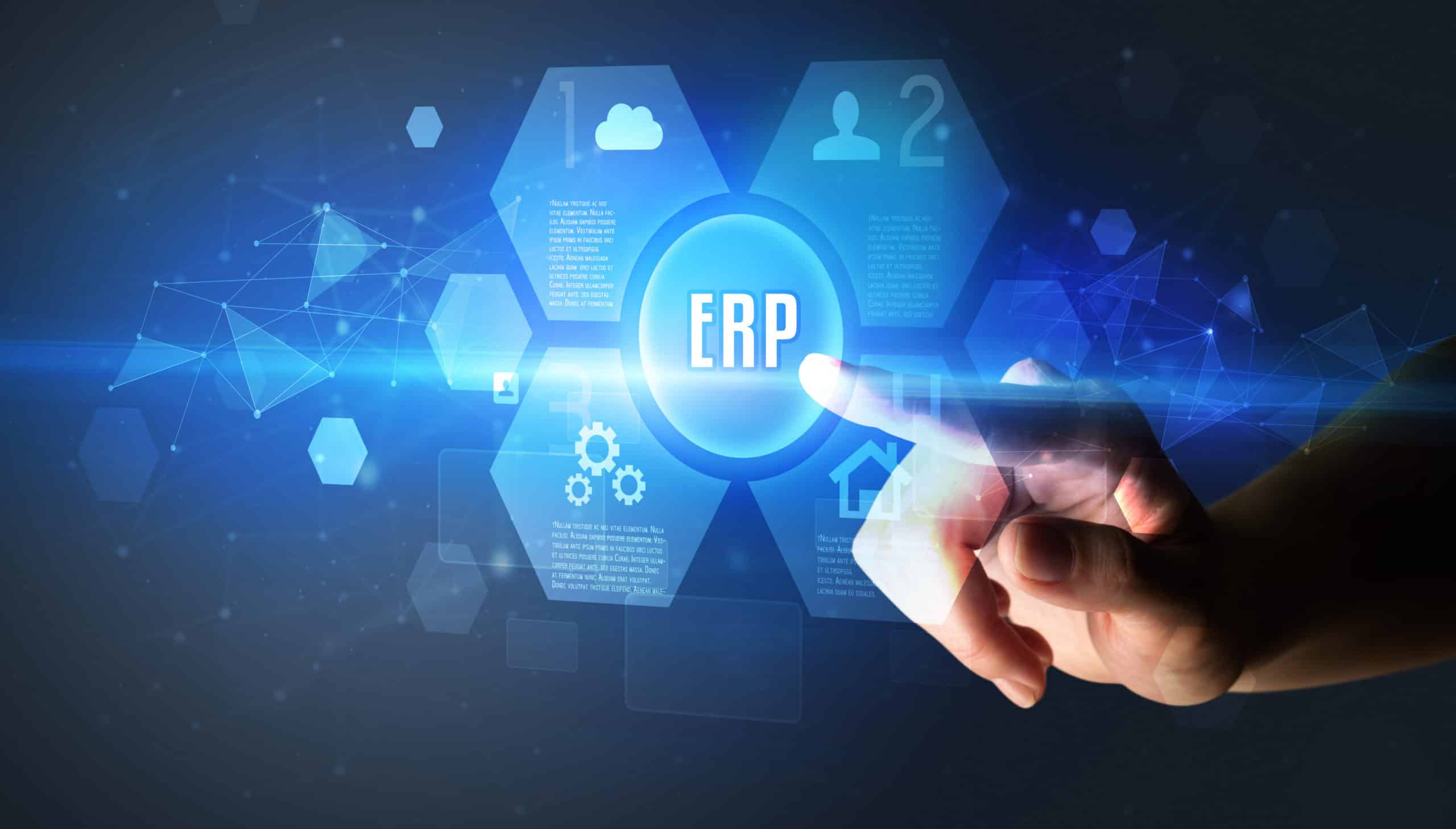
Blockchain technology has been gaining significant attention in the business world for its ability to provide unparalleled security, transparency, and immutability of data. While large enterprises have been implementing blockchain technology to enable smart contracts, medium-sized and small businesses can also leverage it to gain a competitive edge. One of the most significant benefits of integrating blockchain technology in enterprise resource planning (ERP) systems is the enhancement of efficiency and transparency across processes.
ERPs can integrate with blockchain technology in several ways. One approach is to use a middleware layer that connects the ERP with the blockchain network. This middleware layer can be used to manage the data flow between the ERP and the blockchain network, including the processing of transactions and the synchronization of data. Another approach is to use smart contracts, which are self-executing contracts that are stored on the blockchain network. Smart contracts can be used to automate business processes, such as invoicing and payments, and can help to reduce the need for manual intervention.
One of the benefits of integrating ERPs with blockchain technology is increased transparency and accountability. By using blockchain technology, businesses can ensure that all transactions are recorded on an immutable ledger that cannot be tampered with. This can help to reduce the risk of fraud and increase trust between parties. Additionally, blockchain technology can help to reduce the need for intermediaries in transactions, which can lead to lower transaction fees and faster processing times.
Another benefit of integrating ERPs with blockchain technology is increased efficiency. By using blockchain technology, businesses can automate many of the processes involved in transactions, such as invoicing and payments. This can help to reduce the need for manual intervention and increase the speed of transactions. Additionally, blockchain technology can help to reduce the risk of errors and inaccuracies, which can lead to increased efficiency and cost savings.
However, integrating ERPs with blockchain technology also poses several challenges. Implementing a secure and efficient payment system that utilizes blockchain technology requires significant technical expertise and resources, which may be beyond the capabilities of some businesses. Additionally, blockchain technology is still a relatively new and rapidly-evolving technology, which can make it difficult for businesses to keep up with the latest developments and best practices.
To address these challenges, businesses can work with blockchain technology experts who can help to guide them through the integration process, like MuKn.
At MuKn, we specialize in developing custom and bespoke blockchain solutions that integrate seamlessly with ERP systems. Our solutions incorporate blockchain’s four core features, privacy, shared ledger, proof, and smart contracts, to create a unified ecosystem that offers unparalleled security and transparency.
- Privacy: Our solutions enable transactions to be carried out in a way that only those with valid reasons to access the transactions can view them. This enhances data security and privacy, preventing unauthorized access and tampering with sensitive information.
- Shared Ledger: Our solutions create a decentralized and distributed digital ledger that provides a unified view of all transactions, making it easy to track and verify transactions in real-time. The record is only available to members of a business network, ensuring that only authorized parties have access to sensitive data.
- Proof: Our solutions enable transactions to be endorsed by involved participants in a business network. This makes it easy to verify transactions and ensures that they are authentic, reducing the risk of fraudulent activities.
- Smart Contracts: Our solutions enable the automation of transactional processes through the use of smart contracts. Smart contracts are electronic agreements that are automatically executed based on contractual terms and business logic. This enables businesses to automate processes, such as triggering purchase orders when stocks fall to benchmark levels, without requiring third-party intervention.
One use case is the integration of blockchain technology into supply chain management systems. By using blockchain technology to track the movement of goods and payments, businesses can ensure that transactions are secure and transparent, while also reducing the risk of fraud and errors.
Our solutions enable businesses to formalize and enforce agreements automatically, authenticate inventory purchases with third-party suppliers, and verify and authenticate identities. This creates a unified ecosystem that offers a risk-free payment processing solution, making auditing easier and risk-free.
Use Cases
Our blockchain-powered ERP solutions can be integrated across various industries, including the food industry, finance sector, and manufacturing industries. For instance, businesses in the food industry can leverage our solutions to create secure documentation of raw materials with real-time visibility in the supply chain. This ensures that businesses can track the provenance of each individual component of a product, enhancing transparency and accountability.
In the finance sector, our solutions can be used to create a simplified audit trail by collecting transactional data from multiple financial systems. This ensures that all transactions are recorded accurately, reducing the risk of errors and fraudulent activities. In the manufacturing industry, our solutions can be used to provide complete provenance details for each individual component of a product. This enables businesses to track the entire supply chain, from raw materials to the finished product, ensuring that details are accessible to all parties involved.
Overall, the integration of blockchain technology in ERP systems is a promising development that can revolutionize the way businesses manage their operations. It presents an opportunity for businesses to enhance their processes and optimize their resources, leading to increased profitability and growth. As more and more businesses recognize the potential of this technology, we can expect to see widespread adoption of blockchain-integrated ERP systems in the near future.